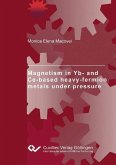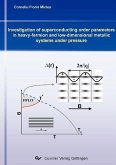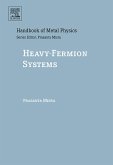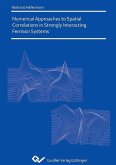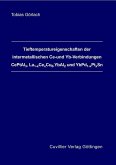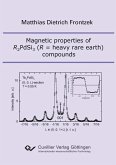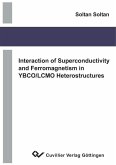Antiferromagnetism and Superconductivity in Ce-based Heavy-Fermion Systems
The interplay of antiferromagnetism (AFM) and superconductivity (SC) in three Ce-based heavy-fermion (HF) compounds, CeCoIn5, Ce2RhIn8 and A/S-type CeCu2Si2, has been studied. Pressure is an ideal tool to tune a system through different ground states without introducing additional disorder in the system as in the case of doping. Low-temperature specific-heat, a.c.-susceptibility and magnetocaloric measurements under hydrostatic pressure have been performed in order to investigate the evolution of the ground-state properties of the mentioned HF systems. The experiments were carried out for pressures p ≤ 2.1 GPa in the temperature range 0.26 K ≤ T ≤ 7 K and in magnetic fields up to B = 8 T. Single-crystalline samples have been used for all the experiments.
CeCoIn5, a HF SC at ambient pressure, is located in the close vicinity of an AFM instability. Though never detected in CeCoIn5, an AFM ordered state is expected to exist at a slightly negative pressure. Application of pressure moves CeCoIn5 even further away from the AFM ordered state. Ce2RhIn8, a compound belonging to the same family of CenTmIn3n+2m (T: Co, Rh, Ir) HF compounds as CeCoIn5, orders AFM at ambient pressure. Application of pressure continuously suppresses the AFM phase transition temperature. The appearance of pressure-induced SC is expected in this material. The third investigated compound, the A/S-type CeCu2Si2, already at ambient pressure offers the possibility to study the intimate interaction between AFM and SC. The AFM ordered state, present above the temperature where SC is formed, is gradually suppressed by application of pressure, while the SC state is stabilized upon increasing pressure. With further increasing pressure, CeCu2Si2 approaches the region where the degeneracy of the 4f state of Ce is increased by a collapse of the crystalline electric field splitting and a transition to an intermediate-valence state takes place. However, SC survives in the system over a very broad pressure range. While the role of the AFM order in the formation of a SC state is relatively easy to study in a large number of Ce-based HF systems, the influence of the unstable 4f state of Ce on the formation of a SC state is still a problem difficult to approach experimentally. CeCu2Si2 is nearly unique among Ce-based HF compounds by the fact that SC is present at low temperatures over a wide pressure range and typical instabilities, such as AFM and valence, are both accessible by application of moderate pressure and are in the same time sufficiently separated in pressure to be distinguishable.
The SC state, when present, and its interplay with the AFM instability was investigated in the three compounds studied in this work. Predictions of the AFM spin-fluctuation theory, as well as of theories promoting magnetic-fluctuation mediated SC in HF systems, have been probed by our measurements. The influence of a possible valence instability on the high-pressure SC state of CeCu2Si2 has been studied as well. The possible existence of quantum critical points in regions where different types of instabilities are suppressed to T = 0 K was also addressed in this work.
Dieser Download kann aus rechtlichen Gründen nur mit Rechnungsadresse in A, B, BG, CY, CZ, D, DK, EW, E, FIN, F, GR, HR, H, IRL, I, LT, L, LR, M, NL, PL, P, R, S, SLO, SK ausgeliefert werden.



